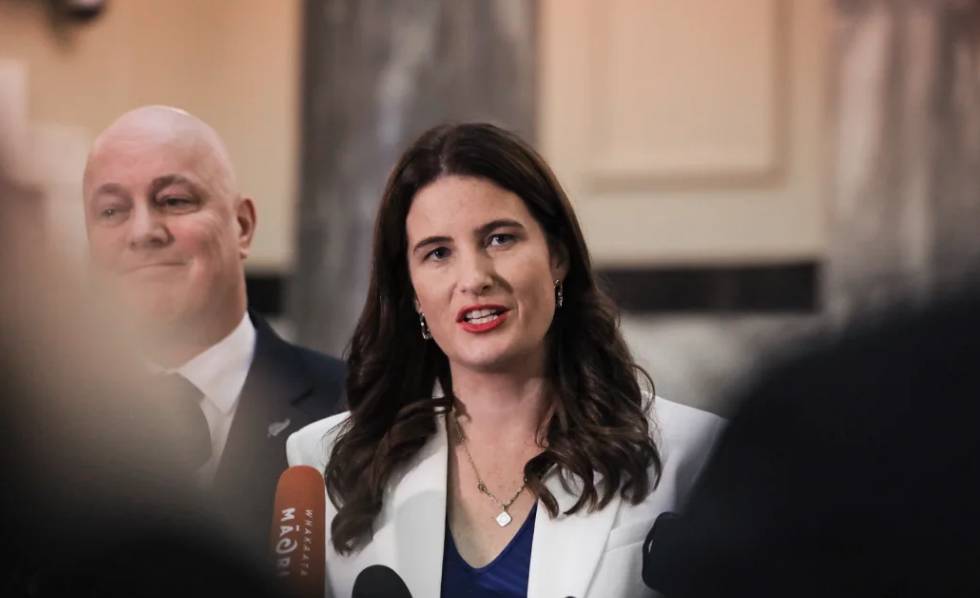
It comes as one of the largest public agencies, the Ministry of Business, Innovation and Employment (MBIE), put the call out to staff, offering voluntary redundancies.
Before the October 14 election, National campaigned on slashing spending across 24 public agencies, as part of its "Back Pocket Boost" tax plan.
The policy proposed an annual reduction in back-office expenditure by an average of 6.5 percent; on top of Labour's $500 million in annual public sector savings.
National identified two dozen agencies which could spend less including the transport, conservation and justice ministries.
Now, Finance Minister Nicola Willis' office has confirmed she asked "all departments" to identify savings in December, not just those listed in National's election policy.
"Departments have been asked to identify savings options of either 6.5 or 7.5 percent depending on how much their full-time equivalent staff numbers (FTE) have increased since 2017," it said in a statement.

"Nicola Willis made reckless commitments about tax cuts which she couldn't afford and now she's sneaking in larger cuts than she signalled before the election. This is a broken election promise."
Willis said the policy was consistent with National's pre-election commitment to restore discipline to government spending.
"We were very upfront about our commitment to get a reduction in consulting and contracting spend across government; to move resources out of bureaucracy and into the frontline.
"An inclusion of those [all] agencies in this exercise is entirely consistent with those promises we made to New Zealanders."
'Not a great way to start' : union
Threatened cutbacks to government departments and agencies across the board will cost the country for years to come, the Public Service Association warns.
Assistant secretary Fleur Fitzsimons told RNZ's Midday Report it was "a very short-sighted approach".
"It will also undermine the ability of the government to implement evidence-based policies.
"They say they want to take an evidence-based approach. Well, I thinking cutting the public service is not a great way to start."
New Zealand needed public sector expertise to deal with a range of looming problems, including the infrastructure deficit, the ageing population and the need to reduce emissions, she said.
However, it appeared that public servants were being "sacrificed" to pay for the promised tax cuts with all agencies asked to find "cost savings" of at least 6.5 percent.
"That's particularly worrying as many of those agencies and research institutes are already cut to the bone and operating on the smell of an oily rag."
Union officials had met with the Finance Minister and made their views clear that these cuts were not only unnecessary but would have a damaging effect, Fitzsimons said.
Meanwhile, the PSA was continuing to work with its members and government agencies to see where efficiencies could be made without job losses.
"But the reality is the savings that have been asked for are going to cut deep and we're going to be monitoring any job losses and the impact on services."
Contrary to claims of a blow-out in the number of state employees, the growth of the public sector in the last few years was in line with population growth and comparable to that of other countries, she added.
Public sector bosses will present their savings plans - including potential risks - to the government soon, before ministers and Cabinet decide whether or not to accept their proposals.
Willis is looking to slash annual public service spending annually by $1.5 billion.
The bulk of that will come from a reduction in consultant costs and savings already announced by the previous government. The remaining $600 million will be made up of further cuts.
Exactly where these savings are made will be revealed in the Budget in May.
Some government departments are already making changes. MBIE has confirmed it had offered its staff voluntary redundancy this month, having signalled the process late last year.












